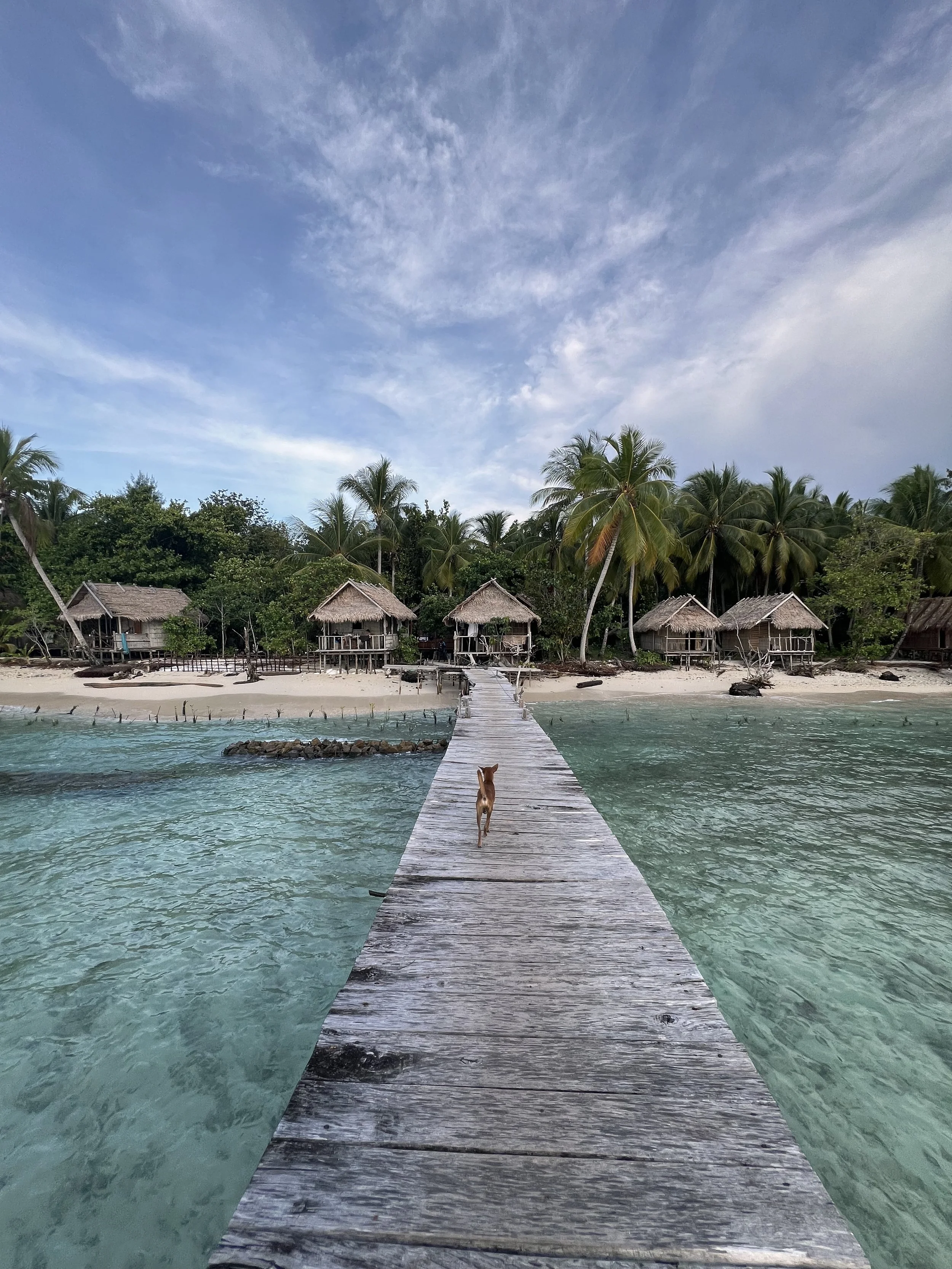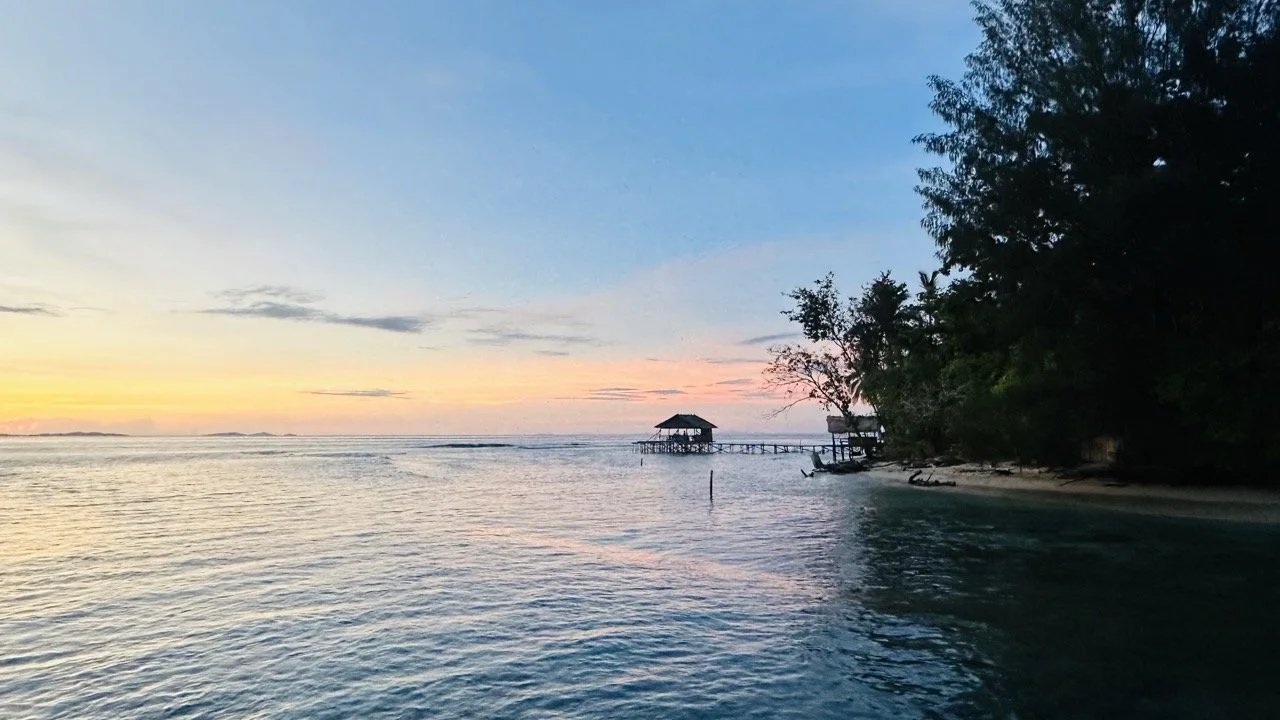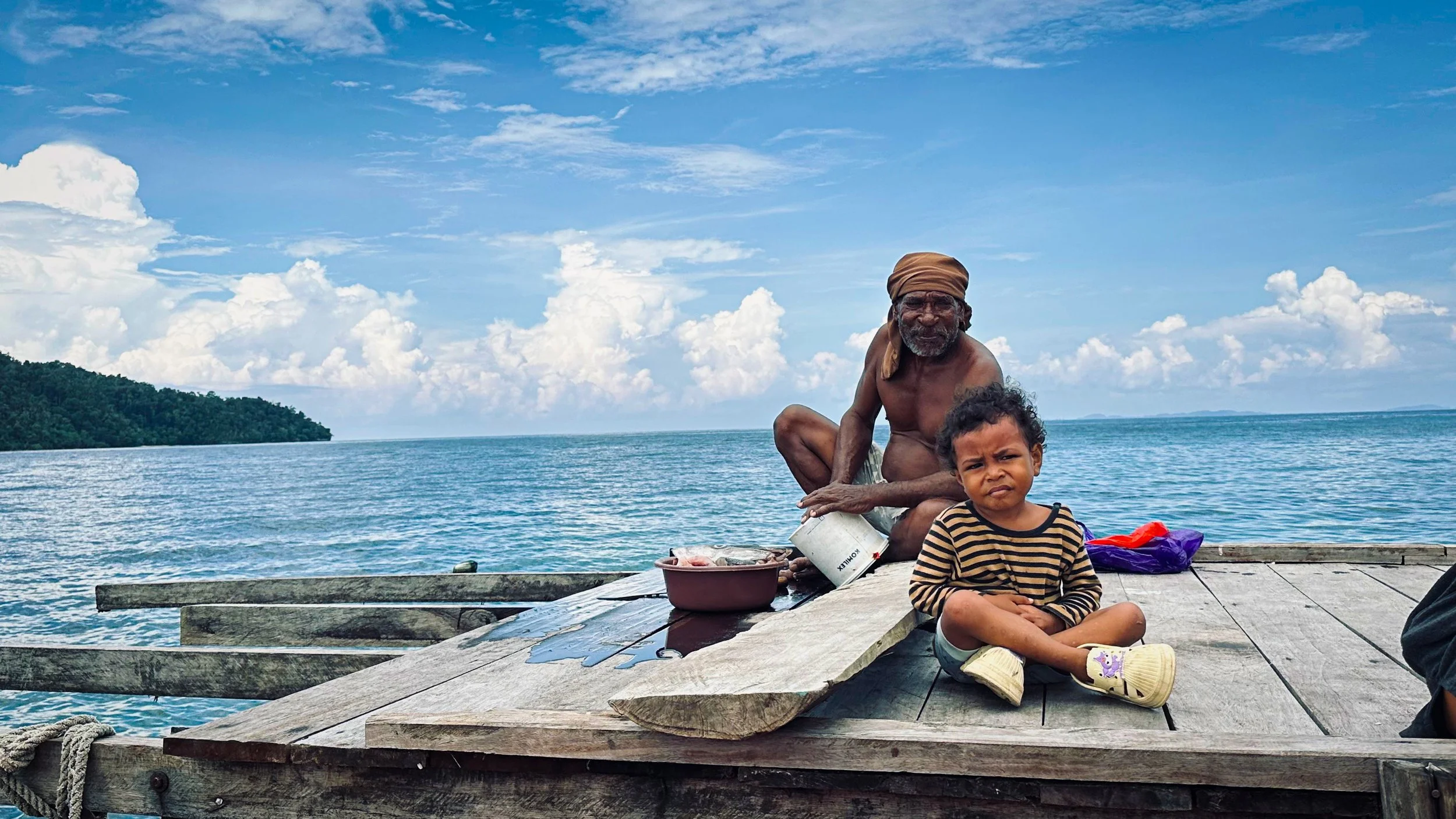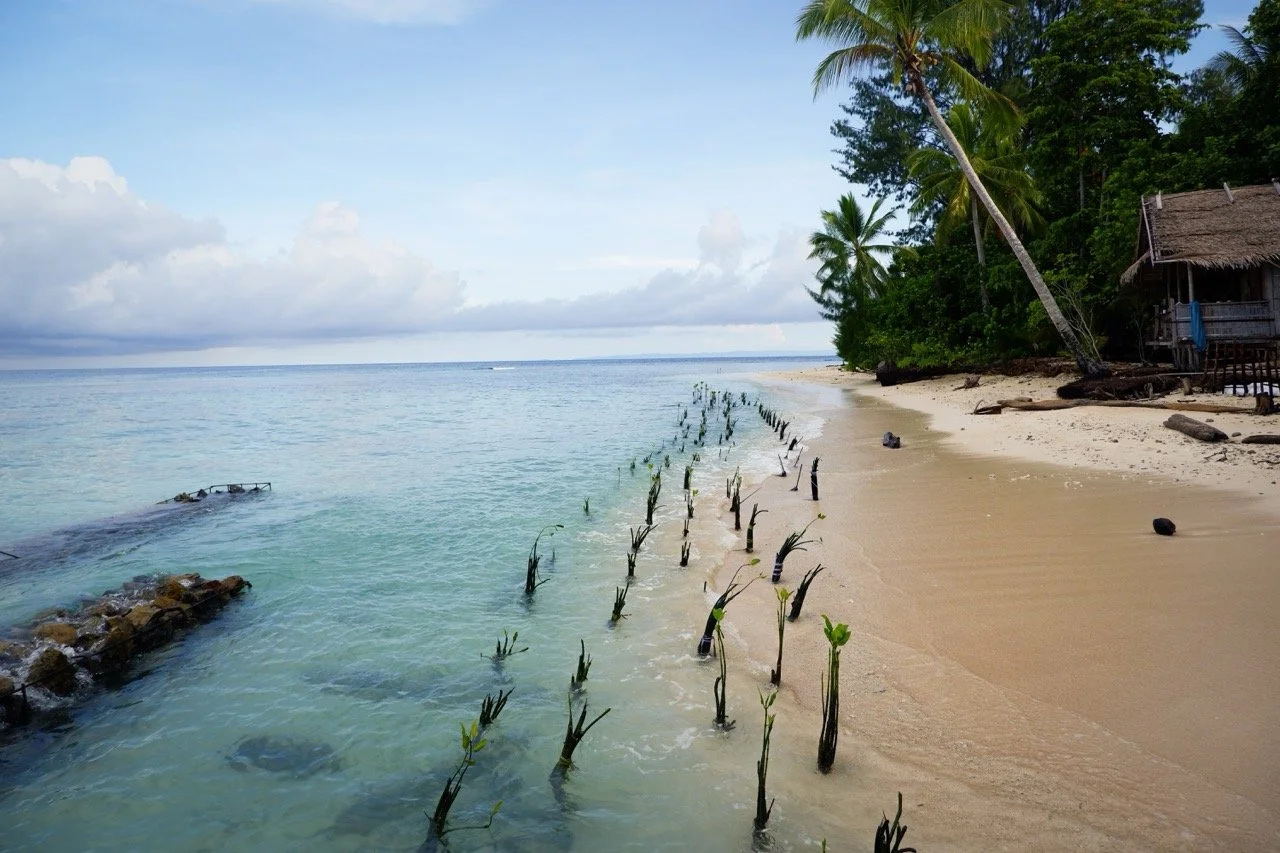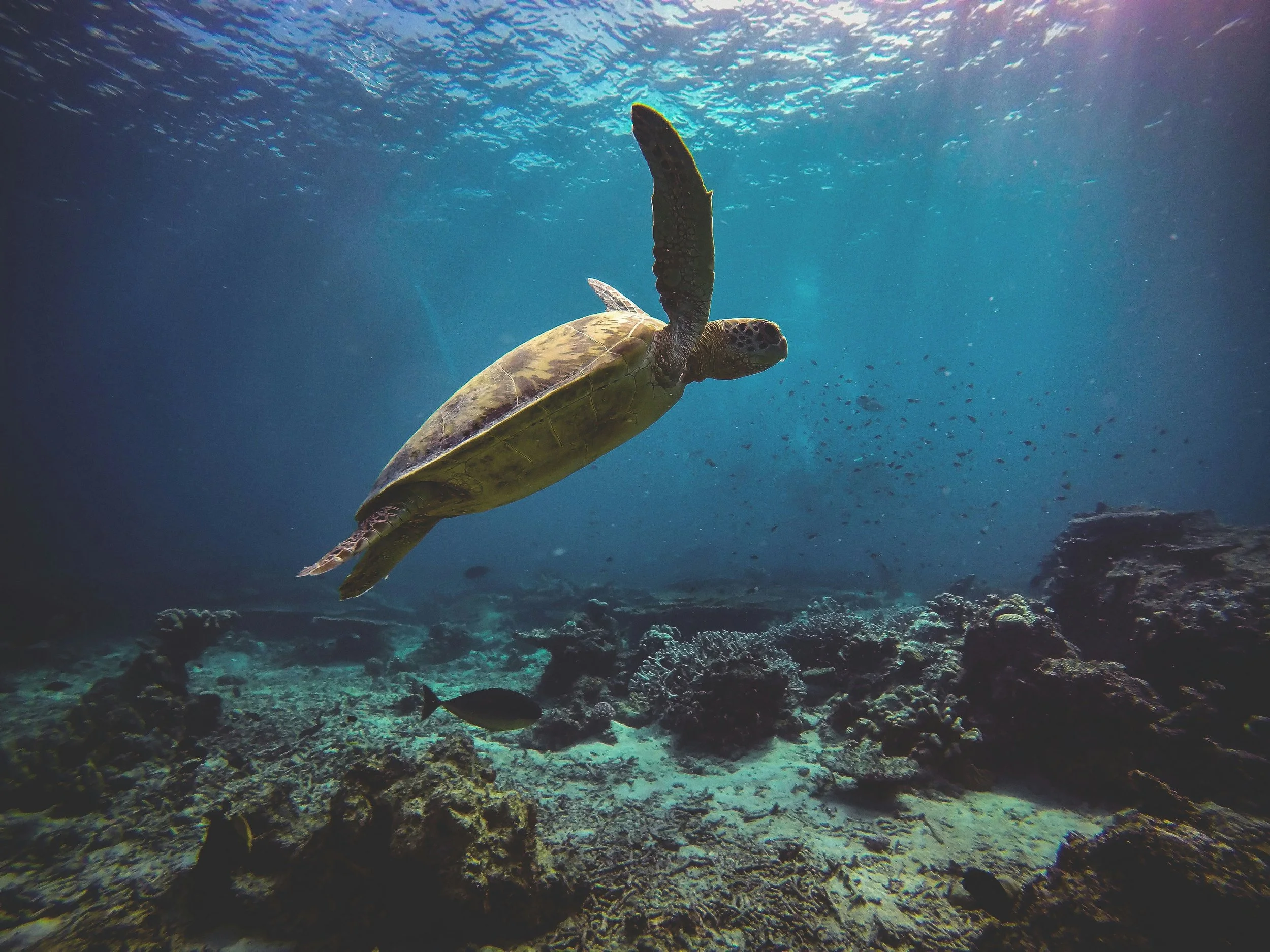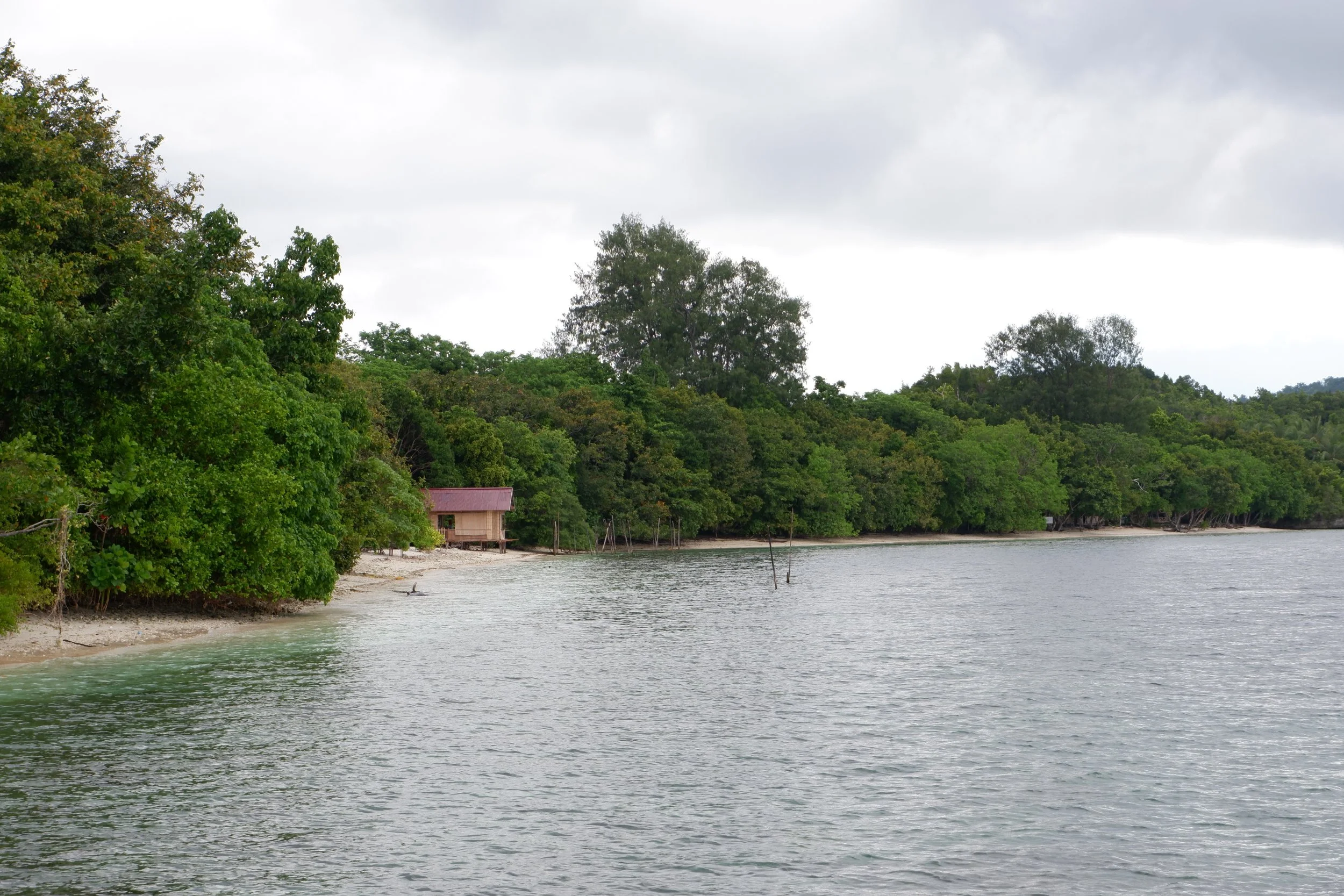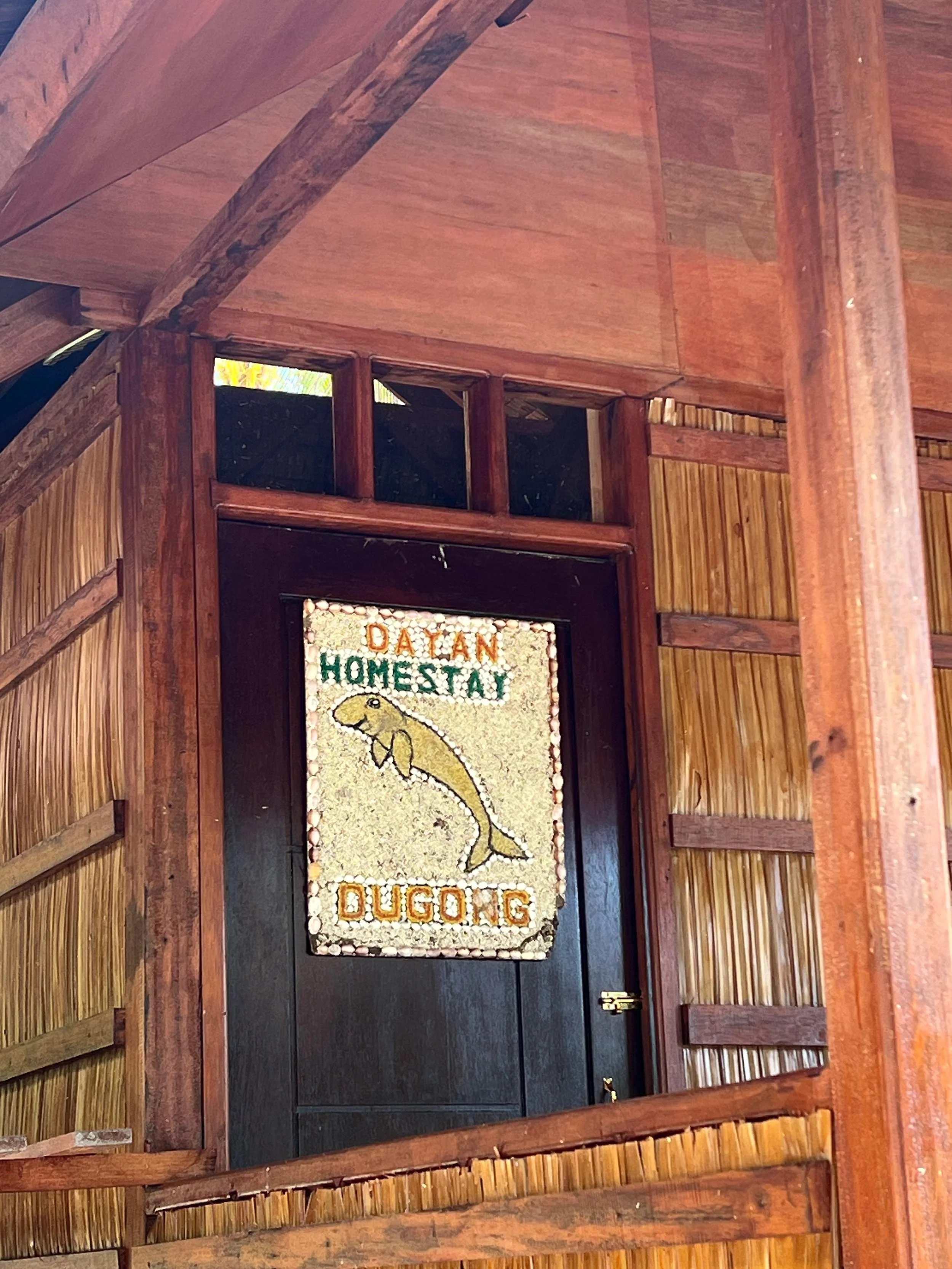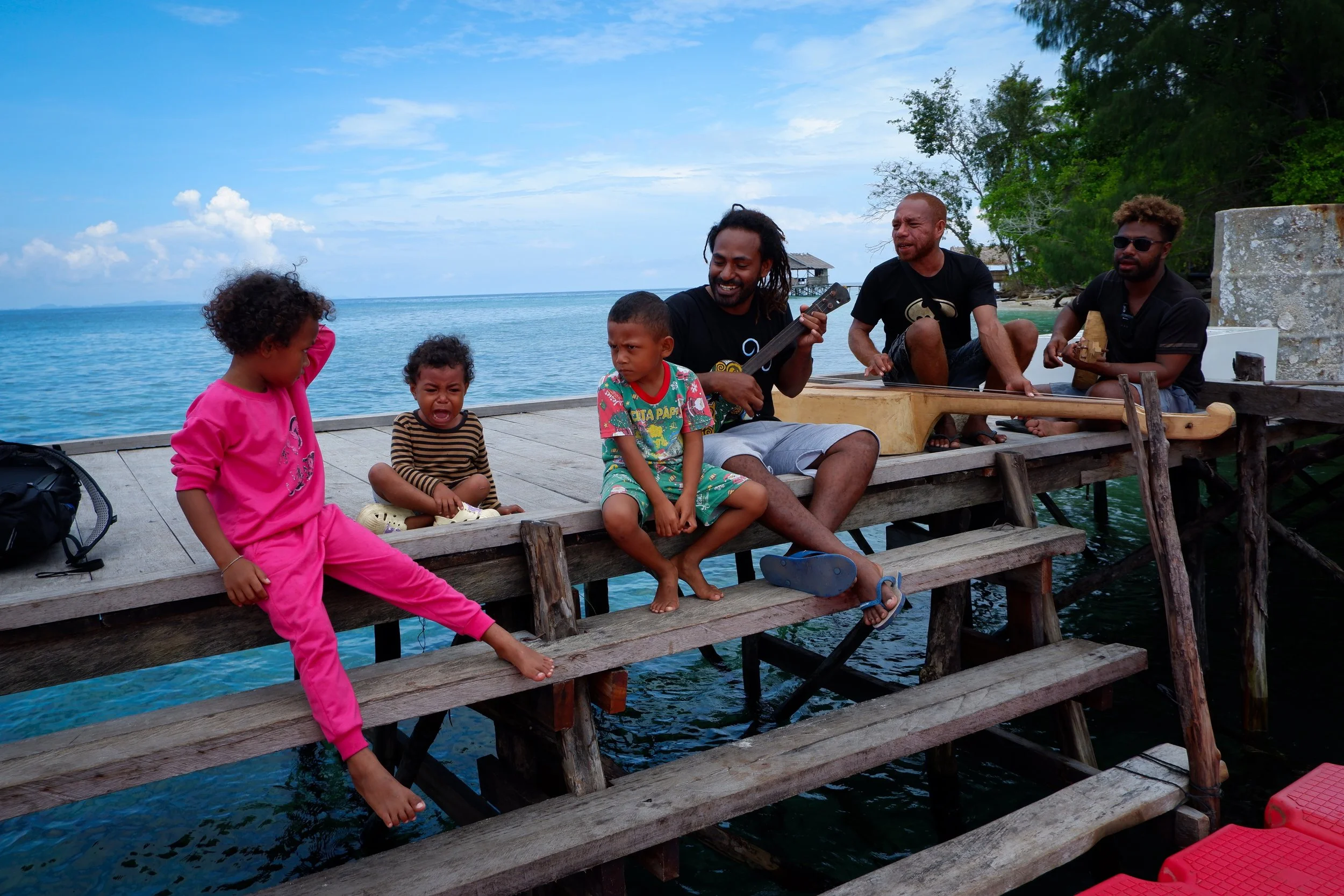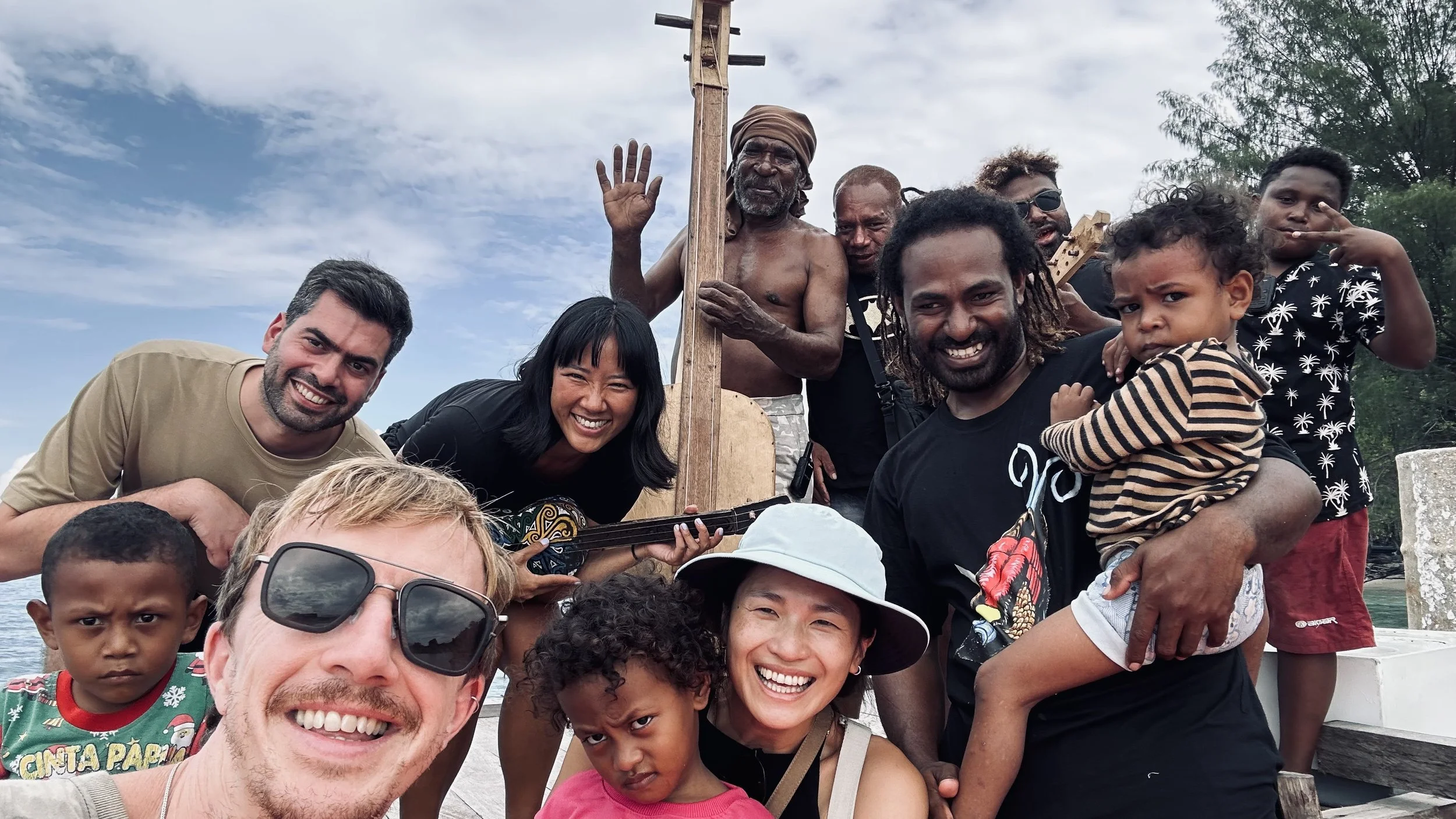“Nature Protects Me Because I Protect It.”
Konstantinus Saleo, Conservationist, Community Leader & Dayan Dive Homestay Owner
My name is Konstantinus Saleo. I'm from Yen Soi, a small village in Raja Ampat. I run a homestay and I do conservation. I plant mangroves, I plant corals, I protect what’s left. Because nature… nature is everything to us. It's life, for our children, and for the next generation.
We live on the coast, and the ocean is our kitchen. We eat from it. We breathe from it. And now, we’ve started to see the ocean differently. We used to see manta rays, sharks, turtles as just food. Our grandparents caught them. But now, we understand, they’re not just animals. They’re part of us. We’re connected: human, nature, and God. If one breaks, something will go wrong. And it’s already happening, climate change, storms, the weather… all of it.
I once had a moment underwater with a turtle. I was diving, and the turtle came behind me, soft, gentle and touched my finger. It felt like it was saying, “I see you.” That’s when I knew: if you protect nature, nature respects you. My father used to say that. He always said, “Protect nature, and nature will protect you.”
Photo by Jesse Schoff on Unsplash
My father, he was everything to me. He didn’t study conservation, but he lived it. In 2002, he started working with Conservation International and built a conservation post in our village. Every morning and evening, he’d go to the jetty and sing traditional songs. He was a teacher, a musician, a guardian. And every time he sang, two manta rays would come, jump, and dance in front of him. Every day. That was his spirit. That was their connection.
The first conversation post in the area built by Konstantine’s father.
He gave his life for this. He died in the forest during a conservation patrol. But he left us this mission. He told us: don’t destroy nature for fast money. Don’t dynamite the reefs or poison the fish. Just protect the coral. One day, someone will pay you just to see it. And he was right. That’s how our homestay survives today. People come to see what he saved.
I remember him telling stories in schools, turning conservation into games. One game showed how trees, humans, and animals are connected by string. If you cut the tree, everything falls; humans, animals, all of it. That’s how he taught us. Simple. Clear. Powerful.
In the old days, we believed nature had spirit. A big tree had spirit. A crocodile had spirit. Some people could speak to animals, like the man from Misool who speaks the language of crocodiles. If there was trouble, they’d call him, and he’d come and talk to the animal. No fight needed. That’s how connected we were.
We have stories about dugongs, too. In our culture, they were once human. A woman who swam every day, until one day her body changed and she couldn’t come back. Her spirit became dugong. That’s why some families, like mine, Sao Yai, see dugongs as ancestors. If someone from our family harms a dugong, they feel it. Their teeth break. Something always happens. So we don’t touch them.
Photo by Kris-Mikael Krister on Unsplash
We once had a dugong bone, and we moved it into the restaurant. After that, the beach began to erode. My parents said, “That bone doesn’t belong there.” It needs to be in a sacred place. You can’t just take spirit and put it anywhere.
We lost a lot of that belief when other religions came. Christianity, Islam; they changed how we saw the world. But I hope one day we remember again. That we find our way back to the spirit of nature.
That’s why I’m doing this. That’s why I closed Manta Point. Too many speedboats, too many flashes, no respect. So I closed it. I told the government, I told the dive operators. Now only our guests can go there. The manta rays left for two months. Now they are slowly coming back.
Mantas… they are my friends. I don’t need to chase them. One day they come close to me. They choose to come. Just like that turtle. You don’t need to touch them. Just protect them, and they will stay with you.
This is not just about tourism. This is about stories. I don’t want to tell my kids one day that dugongs and manta rays were just stories. I want to show them. I want to say, “Come, see, there, right there.” Not, “Once upon a time.”
If we don’t protect this now, our children will only have stories. No more songs. No more spirits. No more reef.
That’s why I’m here. That’s why I’m still fighting.
Editorial Note:
While we were filming, the sky was overcast, and a soft grey shimmer spread across the ocean. Just as Konstantine finished sharing his stories and we wrapped up the interview, a rainbow appeared behind him. He turned, smiled, and said, “This is how nature works. It hears us. When we protect nature, it responds.”
Later that day, Konstantine and his family gathered on the jetty and sang their local songs to wish us farewell. As our boat pulled away from the shore, a warm sadness settled over us - a tender mix of gratitude and awe for the people and place we were leaving behind. Then suddenly, the captain stopped and pointed to the water with excitement: “Mantas! Mantas!”
A group of manta rays appeared, gliding gently around us and circling the boat. It felt like the magic of Konstantine’s story was still unfolding with his father once sang to the mantas, and now they had been summoned for us. As if the songs had reached into the deep, calling them to the surface to wish us farewell too.
Additional:
Watch this short film of Konstantine and his legacy by Oceans Hope, where you can also make a donation to support Konstantinus and his cause.


